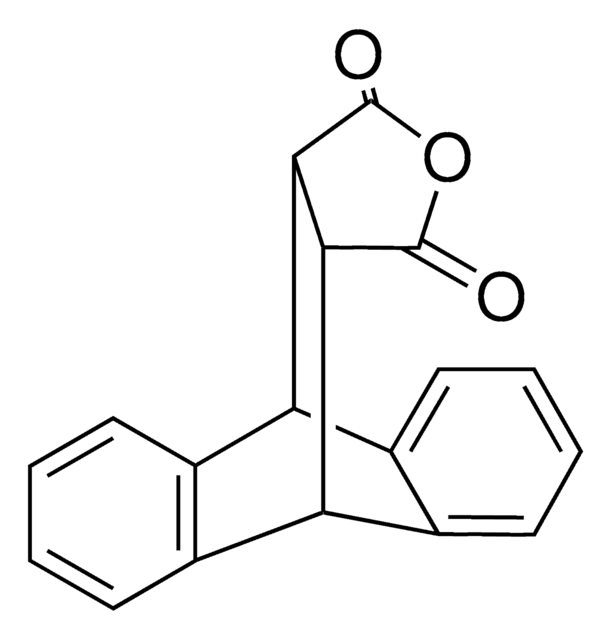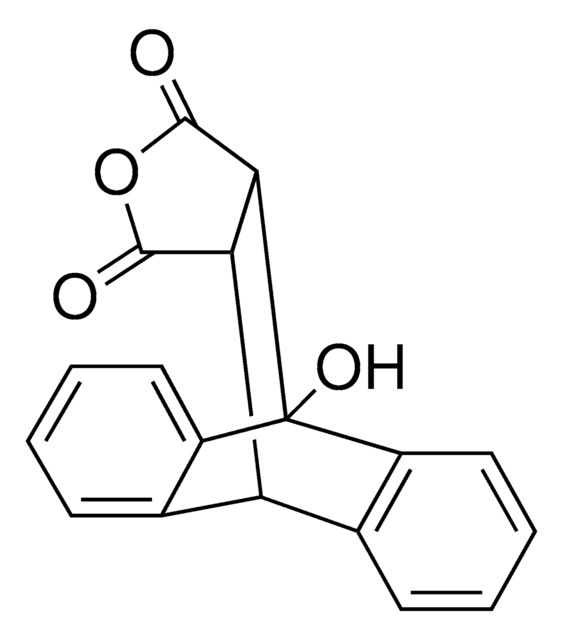31581
Anthracene
analytical standard
Synonym(s):
Anthraxcene, Paranaphthalene
About This Item
Recommended Products
grade
analytical standard
Quality Level
vapor density
6.15 (vs air)
vapor pressure
1 mmHg ( 145 °C)
autoignition temp.
1004 °F
shelf life
limited shelf life, expiry date on the label
technique(s)
HPLC: suitable
gas chromatography (GC): suitable
bp
340 °C (lit.)
mp
210-215 °C (lit.)
solubility
alcohols: soluble
benzene: soluble
chloroform: soluble
hydronaphthalenes: soluble
supercritical carbon dioxide: soluble
application(s)
environmental
format
neat
SMILES string
c1ccc2cc3ccccc3cc2c1
InChI
1S/C14H10/c1-2-6-12-10-14-8-4-3-7-13(14)9-11(12)5-1/h1-10H
InChI key
MWPLVEDNUUSJAV-UHFFFAOYSA-N
Looking for similar products? Visit Product Comparison Guide
Related Categories
General description
Application
Recommended products
Signal Word
Warning
Hazard Statements
Precautionary Statements
Hazard Classifications
Aquatic Acute 1 - Aquatic Chronic 1 - Eye Irrit. 2
Storage Class Code
11 - Combustible Solids
WGK
WGK 2
Flash Point(F)
249.8 °F - closed cup
Flash Point(C)
121.0 °C - closed cup
Personal Protective Equipment
Choose from one of the most recent versions:
Already Own This Product?
Find documentation for the products that you have recently purchased in the Document Library.
Customers Also Viewed
Our team of scientists has experience in all areas of research including Life Science, Material Science, Chemical Synthesis, Chromatography, Analytical and many others.
Contact Technical Service









